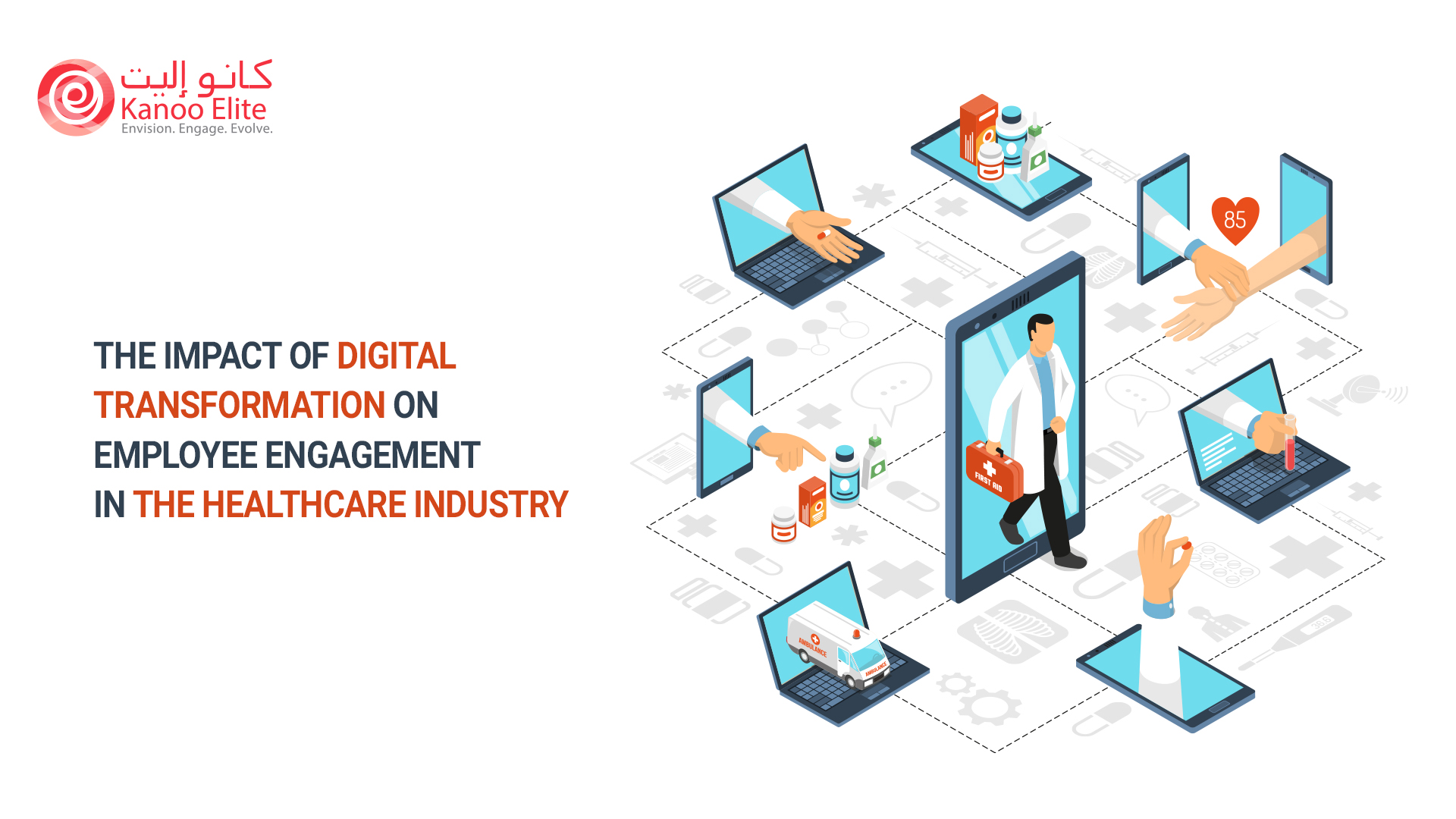Digital transformation has become a catalyst for change across industries, including healthcare. In the healthcare sector, digital technologies are revolutionizing patient care, operational efficiency, and overall service delivery. However, the impact of digital transformation extends beyond operational enhancements; it significantly influences employee engagement, morale, and satisfaction within healthcare organizations. This blog explores how digital transformation initiatives are reshaping employee engagement in the healthcare industry and the implications for organizational success.
Enhancing Workflow Efficiency and Job Satisfaction
Digital transformation in healthcare streamlines workflows and reduces administrative burdens for healthcare professionals. Electronic health records (EHRs), telehealth platforms, and digital communication tools facilitate seamless information sharing and collaboration among healthcare teams. This improved efficiency translates into less time spent on paperwork and administrative tasks, allowing clinicians to focus more on patient care.
By reducing the administrative workload, digital tools contribute to higher job satisfaction among healthcare professionals. Nurses, doctors, and administrative staff can allocate more time to meaningful patient interactions and clinical decision-making, which are central to their roles. As a result, employees feel more fulfilled in their work and perceive their contributions as more impactful, leading to increased engagement and commitment to organizational goals.
Empowering Healthcare Teams with Real-Time Data Insights
Digital transformation enables healthcare organizations to harness the power of data analytics for informed decision-making and personalized patient care. Advanced analytics tools analyze vast amounts of patient data to identify trends, predict outcomes, and optimize treatment plans. Healthcare professionals can access real-time patient information, clinical guidelines, and evidence-based practices at their fingertips, enhancing diagnostic accuracy and treatment efficacy.
Access to actionable insights and evidence-based practices empowers healthcare teams to deliver high-quality care and achieve better patient outcomes. When employees feel equipped with the tools and information needed to perform their jobs effectively, they experience a sense of empowerment and professional fulfillment. This empowerment fosters a positive work environment and strengthens employee engagement by demonstrating the organization’s commitment to supporting clinical excellence and patient-centric care.
Facilitating Collaboration and Communication
Digital transformation promotes collaboration and communication among healthcare teams, regardless of geographical location or shift schedules. Telemedicine platforms, secure messaging apps, and video conferencing tools enable healthcare professionals to consult with specialists, coordinate care plans, and communicate critical information in real time. This seamless connectivity enhances teamwork, reduces communication barriers, and promotes interdisciplinary collaboration.
Effective collaboration not only improves patient care coordination but also enhances job satisfaction among healthcare professionals. By facilitating open communication and teamwork, digital tools create a sense of camaraderie and mutual support within healthcare teams. Employees feel valued and respected for their expertise, leading to higher levels of engagement and morale. Moreover, enhanced communication channels foster a culture of continuous learning and professional development, as healthcare professionals exchange knowledge and best practices to improve patient care outcomes.
Supporting Work-Life Balance and Flexibility
Digital transformation in healthcare introduces flexible work arrangements and remote access capabilities, accommodating the diverse needs of healthcare professionals. Telehealth platforms enable virtual consultations and remote patient monitoring, allowing clinicians to deliver care from any location with internet access. Flexible scheduling options and telecommuting opportunities enable healthcare professionals to achieve better work-life balance, reduce commute times, and manage personal commitments more effectively.
Supporting work-life balance is crucial for employee engagement and retention in the healthcare industry. When healthcare professionals have the flexibility to balance work responsibilities with personal obligations, they experience less stress and burnout. As a result, employees are more motivated, productive, and engaged in their roles. Organizations that prioritize work-life balance through digital transformation initiatives demonstrate their commitment to employee well-being and satisfaction, which strengthens employee loyalty and organizational resilience.
Addressing Challenges and Building Resilience
While digital transformation offers numerous benefits for employee engagement in healthcare, it also presents challenges that organizations must address proactively. Implementation hurdles, such as technology integration, training gaps, and resistance to change, can impact employee morale and adoption rates. Healthcare organizations must invest in comprehensive training programs, change management strategies, and technical support to facilitate smooth transitions and ensure employee proficiency with digital tools.
Moreover, cybersecurity concerns and data privacy regulations pose significant risks to employee engagement and organizational trust. Healthcare organizations must prioritize data security measures, such as encryption, access controls, and compliance with healthcare regulations (e.g., HIPAA), to protect patient information and maintain employee confidence in digital systems.
Conclusion
Digital transformation is reshaping the healthcare industry by improving operational efficiency, enhancing patient care, and transforming employee engagement. By leveraging digital technologies, healthcare organizations empower employees with streamlined workflows, real-time data insights, and enhanced collaboration capabilities. These advancements contribute to higher job satisfaction, increased productivity, and improved patient outcomes.
As healthcare continues to evolve in the digital age, organizations must prioritize employee engagement as a strategic imperative. By fostering a supportive work environment, promoting work-life balance, and addressing implementation challenges effectively, healthcare organizations can maximize the benefits of digital transformation while cultivating a motivated and engaged workforce. Ultimately, the synergy between digital transformation and employee engagement positions healthcare organizations for sustained success and innovation in delivering patient-centered care.



